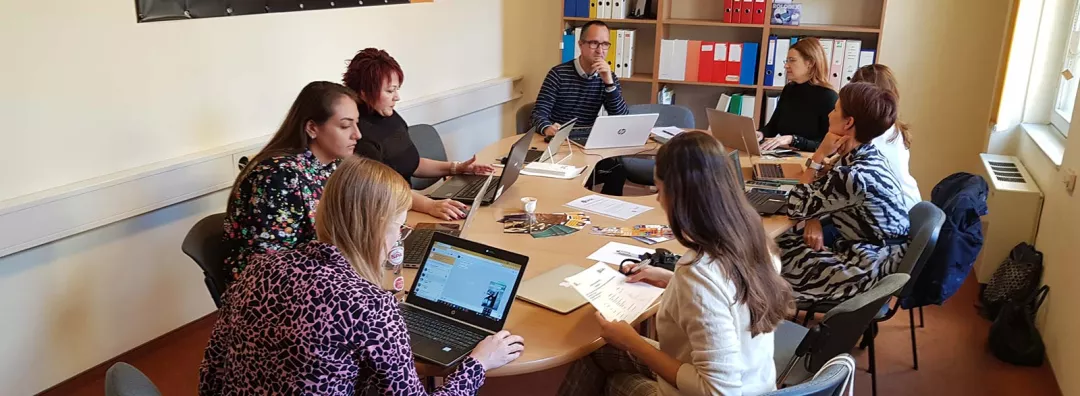Inspirational idea: Training programmes to boost food-related entrepreneurship in European rural areas
Improving skills to reduce inequalities and ensure economic recovery and inclusive and sustainable long-term growth in rural areas with declining populations

Many European countries are witnessing a significant decrease in the population in rural areas, leading to demographic and economic challenges. These areas have become known as 'Empty Europe’. But they are often places with a rich history of food production and gastronomy. The Erasmus+ project SAGA has created a training programme so that local people can capitalise on this heritage, creating jobs and making the rural area attractive again.
Rural populations are declining. Diana Pazaurek of DDRIÜ (STRIA South Transdanubian Regional Innovation Agency), who is coordinating the project, explains: “Depopulation is closely linked to economic issues such as high unemployment rates, low professional activity rates, demographic issues such as an ageing population, emigration to urban areas, low birth rates, and also to a lack of public services.”
SAGA (Social And GAstronomic entrepreneurship in empty Europe) is an Erasmus+ project which addressed the economic recovery and sustainable long-term growth of these rural areas affected by population decline. In order to achieve this, the six partner organisations developed an innovative training programme specifically for people living in these types of rural areas. The programme provides support related to employment as well as the revitalisation of local areas from both an economic and social perspective. It allows adults in rural areas to acquire or improve their skills to set up a social enterprise related to gastronomy, food production or culinary heritage. Diana says: “The increase in production of local, sustainable, quality products serves to boost the economy, attract tourism and also foster social, educational, economic and personal development for individuals, and increase their opportunities for employment.”
Co-creation, co-sharing and collaborative skills are an important part of the programme. Diana says: “The collaborative aspect of the social enterprise is important - cooperation of entrepreneurs with others in their local and regional communities increases their motivation and confidence and has a positive effect on the survival of their ventures.”
The project contributed to increasing the establishment of collaborative social food-related enterprises in the participating rural regions. Between 2020 and 2022, the project partners worked with 30 local communities in five countries. The training course was tried and tested with 117 people and, as a result, 198 business plans were created.
Furthermore, the knowledge sharing and mutual learning that took place between partners throughout the life time of the project also increased the knowledge base and staff competences. Partners were able to boost their position and competitiveness in the field of education and training, and consultancy when it comes to offering business assistance.
The project partners are disseminating the programme widely, using the training guides to help to generate awareness.
“This approach can be transferred to any other training or educational setting in which the need for (collaborative) social enterprise is apparent.”
- Project contact: Diana Pazaurek pazaurekdiana@ddriu.hu
